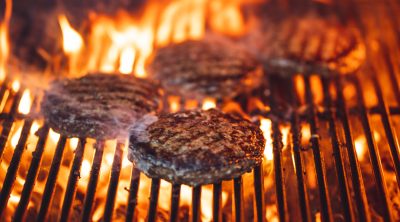Cooking beans and getting an undercooked result is frustrating especially when you’ve prepped them the night before. Sometimes, they’ll be hard as a rock even after you’ve cooked them for a long time.
It can be disheartening for beginners and seasoned cooks alike since cooking beans can be a time-consuming task. If not cooked properly, beans can even cause food poisoning.
In this article, we reveal some steps you can take to fix undercooked beans or to make sure they’ll soften up and be ready at the dinner table next time.
Contents
- How to fix undercooked beans
- Should I throw away undercooked beans?
- What are ways to fix undercooked beans?
- Can a pressure cooker soften undercooked beans?
- Should I increase cooking time if my beans are undercooked?
- Can I recook hard beans?
- Is it better to cook beans covered or uncovered?
- How can you tell if the beans are undercooked?
- Can you eat undercooked beans?
- What should I do if I accidentally consume undercooked beans?
- Why are my beans undercooked?
- Conclusion
How to fix undercooked beans
You can fix undercooked beans by soaking them in water overnight. Drain, rinse, and boil for another 2-3 hours then check if they have softened. Once you’ve achieved your desired consistency, drain the water and add the ingredients you like. After that, simply put the dish in the oven.
Should I throw away undercooked beans?
Fixing undercooked beans may be a daunting task, but there are a lot of simple and easy tricks you can do to fix your beans. Remember though that not all beans can be saved but you can still salvage the hard beans even after you’ve cooked them.
What are ways to fix undercooked beans?
An easy and popular solution to fixing undercooked beans is by adding baking soda. Baking soda neutralizes the acidic content in beans allowing them to soften up.
Adding ¼ teaspoon of baking soda per pound of beans should get you the best results. If this method doesn’t work, then you can simply increase the total cooking time.
Can a pressure cooker soften undercooked beans?
Having a pressure cooker will surely help. Soak the beans properly inside the pressure cooker and cook for approximately 20-30 minutes. Hard beans don’t stand a chance on pressure cookers. This method saves a lot of time.
Should I increase cooking time if my beans are undercooked?
Yes, simply cover the beans with water and boil them for another 2-3 minutes. Simmer at low temperatures and check their tenderness with a fork. Adding a tablespoon of salt for every quart of water also helps if you’re cooking using hard water since the salt helps remove the minerals that keep the beans hard.
Can I recook hard beans?
You can do this but just remember that if you’ve already seasoned the dish, the sauce and all other additions will need to go. Drain your previous batch, wash the beans, and then soak them again with warm water for a couple of hours.
Once done, adding fresh water and seasoning them again with the ingredients you want is all you need. Cook until you’ve reached your desired tenderness.
Is it better to cook beans covered or uncovered?
Cooking beans with a covered lid usually cooks faster by more than a few minutes than with the lid off. However, a lot of folks say cooking them with the lid off is much more preferable as the beans tend to be tastier. This is because the liquid evaporates faster when cooking the beans uncovered, creating a tastier bean broth that coats the beans.
It’s better to test it yourself to see which one works best for you and your loved ones.
How can you tell if the beans are undercooked?
To check if your beans are fully cooked, take a spoonful from the pot as you boil them, and then blow on the beans. The skin of the beans should peel back.
If it doesn’t, then continue boiling until it does. If you’re a seasoned veteran, you can also tell by the smell right away. Beans also don’t expand as expected if they’re still undercooked.
Can you eat undercooked beans?
Undercooked beans shouldn’t be consumed under any circumstance. Beans contain a highly toxic compound called lectin that can cause a wide variety of digestive problems for humans when consumed.
Lectins are found in undercooked or raw beans which is why it’s very important to make sure you are cooking your beans properly.
What should I do if I accidentally consume undercooked beans?
If you’ve accidentally consumed undercooked beans, you should seek immediate medical attention. The signs and symptoms of consuming undercooked or raw beans include abdominal pain, diarrhea, nausea, gas, and vomiting.
The lectin found in them is toxic to humans which is why cooking it properly is the best way to enjoy beans without any food poisoning worries.
Why are my beans undercooked?
Even if you’ve done all the tricks and tips for cooking beans, some just won’t soften no matter how long you cook them, and there are several reasons why.
One of the reasons is simply that your beans may be too old for consumption or are of poor quality. Properly stored beans last for years in an air-tight container or bag. If you’ve cooked a batch and they won’t soften, then you’re out of luck and you’ll have to toss them away.
A common mistake that also happens is that people add too many ingredients too soon preventing the beans to naturally soften. It’s important to fully cook the beans before pouring additives to make sure the acid doesn’t undercook the beans.
Lastly, you may not notice it but the water you’re using to boil the beans may also be a contributing factor to beans undercooking. Hard water contains calcium that makes it difficult for beans to soften and tenderize.
Tap water usually has calcium in it so boiling the liquid before use should do the trick. Chlorinated water also prevents beans from softening. Boiling it for the chlorine to evaporate should also work if freshwater is not available to you.
Conclusion
Eating beans is very healthy and nutritious and should be a staple in your and your family’s dietary plan.
Ensuring proper food preparation and cooking is important to achieve the desired result when cooking beans. Undercooked beans pose a potential health risk but knowing the tricks to fix them should help you along the way.







Leave a Reply